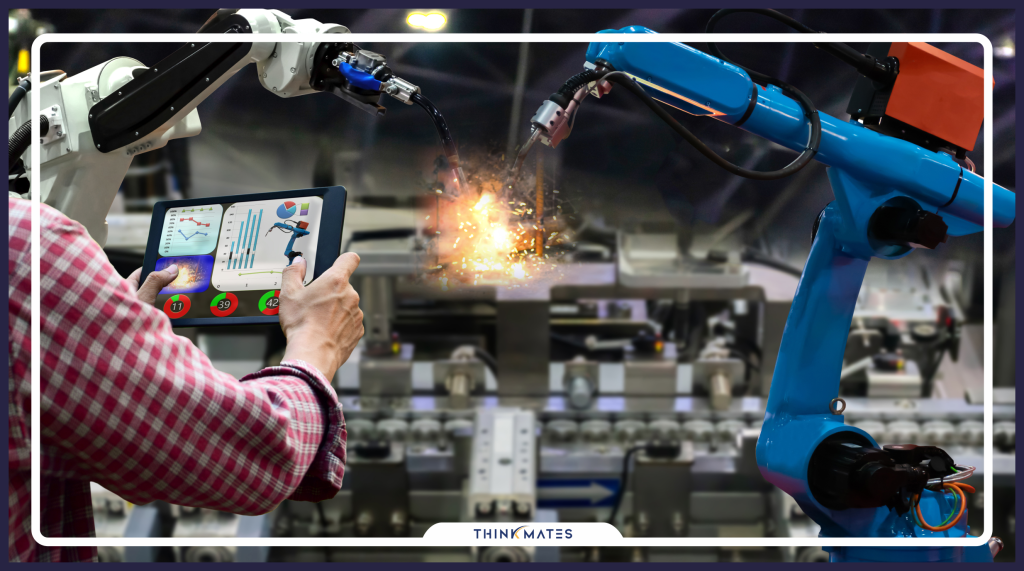
Manufacturing process automation will soon become a standardized tool in manufacturing.
Manufacturing process automation is quickly becoming a standardized tool in the manufacturing industry. That’s why we’ve investigated process automation, what it can do for D2C manufacturers, and the tools scaling manufacturers can use.
There’s a lot of assumptions people formulate when they think about automation along a production line.
They envision conveyor belts, mass layoffs, and soulless robotic arms picking and packing away at products.
Yes, this is the case in some areas of the manufacturing industry that makes use of a repetitive manufacturing process.
But, since the industrial robotics boom of the 1980s the application of automation in manufacturing has changed, from robotic arms for large scale manufacturers to inventory management tools for crafters.
Automation is no longer a threat to employees but an important tool for any manufacturing business.
Manufacturing process automation is here to stay and will only continue to improve each day as the technology becomes more accessible.
As already mentioned, an automated manufacturing system isn’t only limited to production lines. It can be a tool that can automate your inventory, orders, purchasing, or even marketing. Pretty much anything can be automated to improve your manufacturing productions.
In this blog, we look into how a manufacturer can implement these tools into their business and the different functions these tools perform.
So, without further ado, let’s delve straight into it.
What is Automation in Manufacturing?
Automation in manufacturing is the process of using production management software or robotic tools to operate a factory when making a physical product.

As part of Industry 4.0 the Automation in Manufacturing is the technology growing in all sectors.
These tools are built to perform operations to help businesses with tasks such as processing, assembly, inspection, inventory management, and production planning.
In the past, a tool would perform a specialized task, but with technological advancements, the number of operations that a tool can perform has increased.
In a nutshell, this is what is meant by process automation.
It’s quickly become essential to consider the automation of the manufacturing process as 76% of manufacturers uses automation to improve their factory floor’s productivity as a key strategy for increasing growth.
The reason manufacturers have shifted their focus to improving this area is because it’ll help them:

Reduce costs and production waste
To properly adopt lean inventory techniques into your business, you’re going to need to adopt a tool that can help you track inventory movements, WIP manufacturing costs, and operation progress.
Automated manufacturing will allow you to handle multiple projects at once, in turn generating more revenue.
Improve product quality
By having real-time data of your products, you’re able to refine your production with process automation manufacturing. This will allow you to discover the inferior components in your products and make the necessary replacements.
Improve response time
With real-time data, you can get a better understanding of your stock levels, to immediately know if you can start production or if you need to order more material, drastically increasing your business’s fulfilment rate.
Of course, this is mainly focused on manufacturing process software, but when it comes to using robotics, there are two main reasons:
It’s cheap to use; and
It helps compensate for skilled labour shortages.
However, since only 29% of manufacturers turn to robotics, we’ll focus on manufacturing process software for this article instead.
And you might be surprised to know that on the market there is software built to perform a wide range of different manufacturing tasks.
Improve Safety
With the Automation in Manufacturing, less human errors and minimizes the accidents with smart manufacturing process. More safe and relaible by adapting Automation for all Industries.


